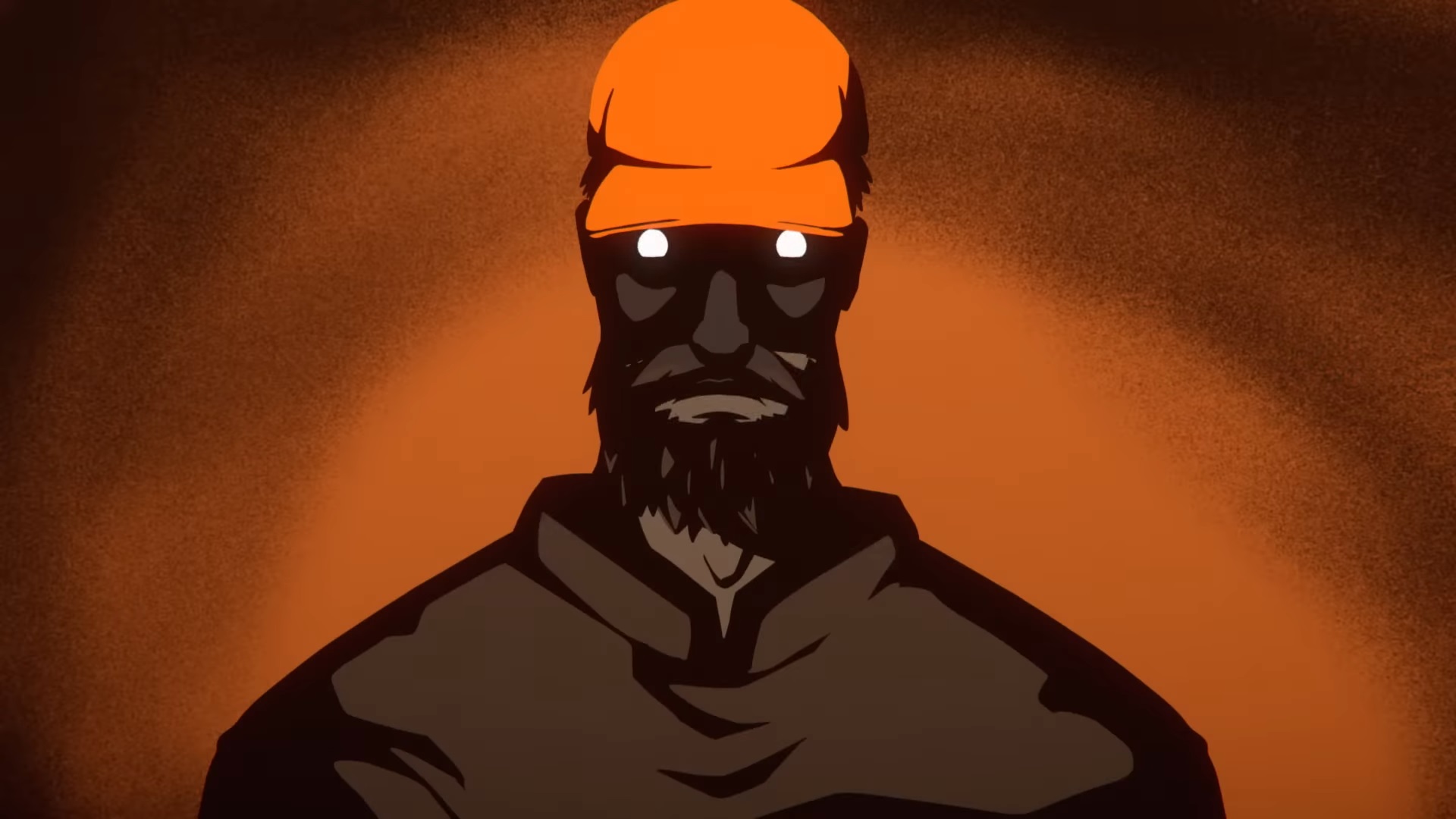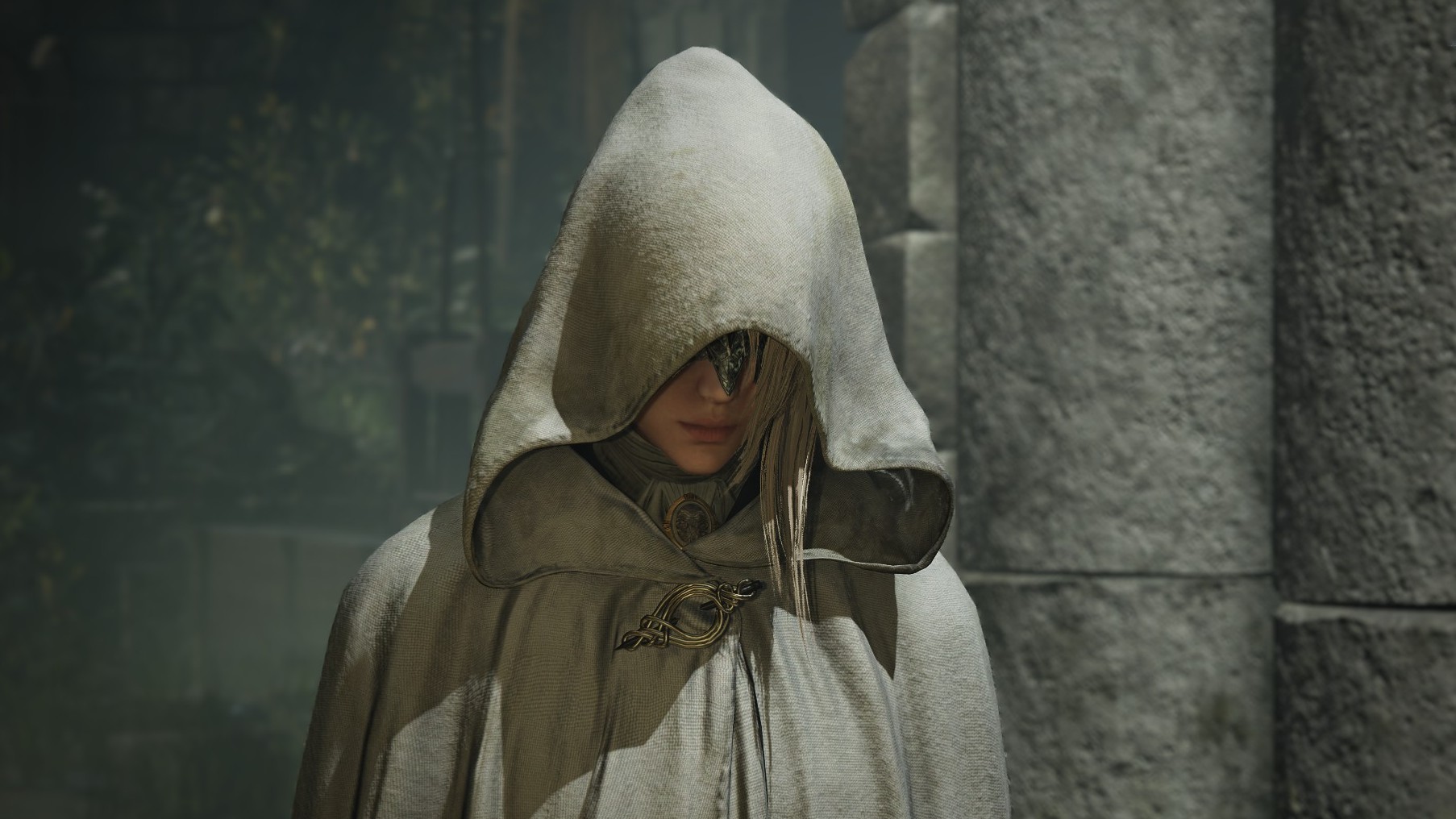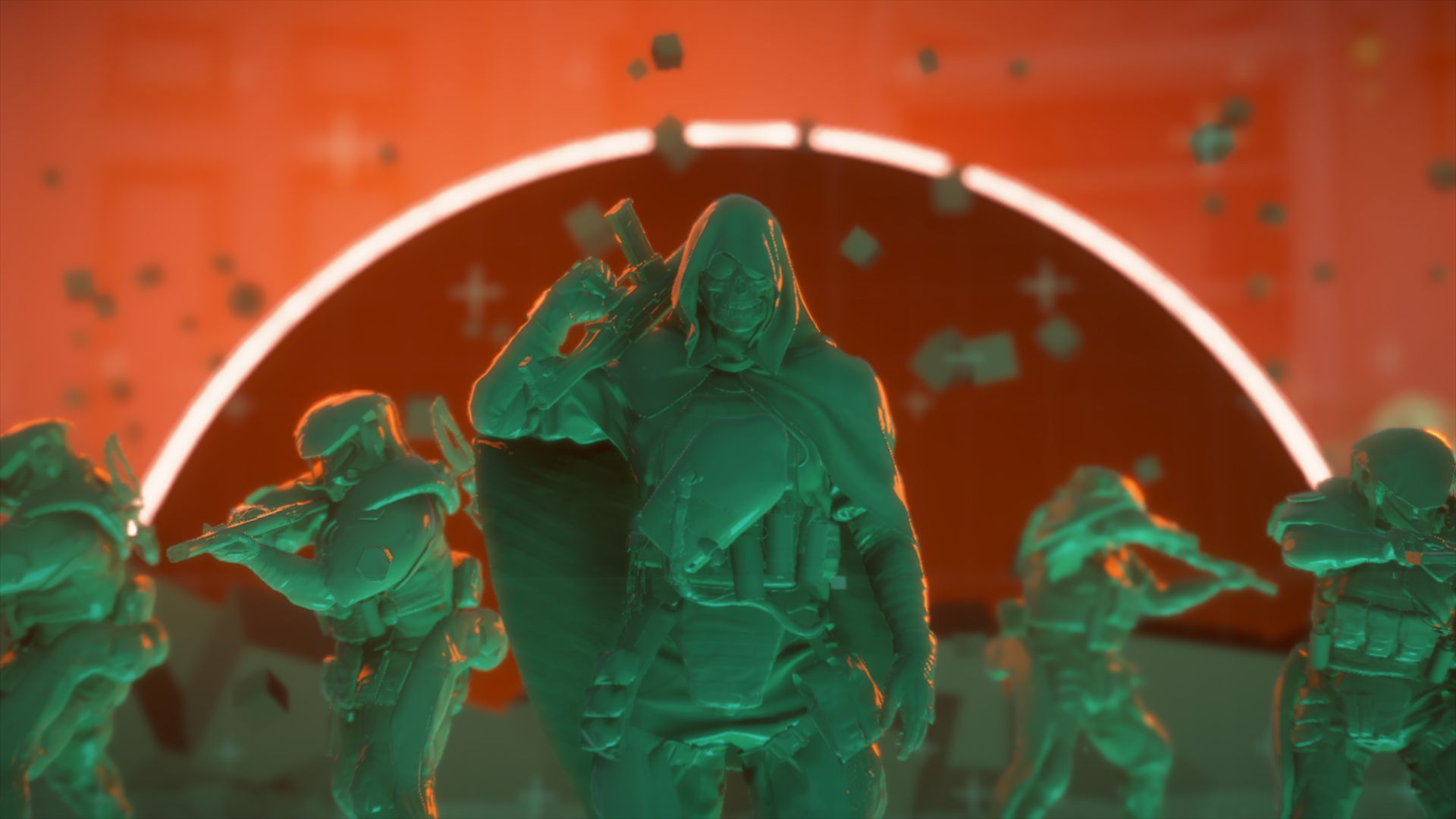
The Last Worker project lead Jörg Tittel sat down with me to talk about the game's mechanics, inspirations, and politics.
Prosaically, I’d describe The Last Worker as a puzzle/stealth game with six degrees of freedom, reviving that classic style of movement spearheaded by ’90s PC games like Descent. And it 100% is that, but project lead Jörg Tittel at studio Oiffy (co-developing the game with Wolf & Wood) is clear that he wants this game to rise above the banal.
“I really think that ‘content’ word is key,” Tittel explained to me. “To have some sort of middleman of a middleman douchebag call your passion project, another child of yours ‘content.’ I want to tear their fucking head off.”
“A bucket of shit has content in it,” Tittel added.
The upcoming game sees players take on the role of one of the titular last workers, the few flesh-and-blood employees remaining at a city-sized warehouse of a fictional, Amazon-style company. The Jüngle corporation combines the globe-bestriding might of a cyberpunk megacorp with the happy-faced sterility of one of our real-life megacorps, with a stylish, fashionably dressed CEO urging you to make people’s dreams come true through customer satisfaction.
You fly through this cavernous warehouse on a mobility scooter/forklift, delivering packages to their proper supply line, and I especially appreciate the preview holograms of your deliveries. One standout from the game’s demo was an infant VR kit—in pink, “for girls.” Protagonist Kurt is ultimately recruited by an activist organization, and you have the choice to sabotage your workplace, or keep making those “dreams” come true.
I think we’re all working in that fulfillment center at the moment.
Project lead Jörg Tittel
Tittel explained to me that members of Oiffy’s team or their families had worked for Amazon or other warehouse owners in the ecommerce age, but that they also felt the setting could serve as a familiar touchstone for the menial, degrading nature of life more broadly in the 2020s. “I think we’re all working in that fulfillment center at the moment,” he mused on the subject.
Tittel cites Lucas Pope’s Papers, Please, as an inspiration for this sort of dueling incentive structure, another game where there’s a tension between just doing your job and maybe doing the right thing instead. “It was a game that created a lot of conversation around it, not necessarily about politics,” Tittel explains. “The game was sort of abstracted enough but it made people at least think about what it might be like to work for the government or border control.”
One of the puzzles you’ll face in The Last Worker (Image credit: Oiffy, Wolf & Wood)
Tittel also points to Firewatch as a big influence, and you can see that DNA in The Last Worker’s first-person presentation, focus on an oft-overlooked blue collar profession, and storytelling carried by a large amount of dialogue with a limited cast. Tittel does note, however, that he “wanted more mechanics” out of Firewatch. “I wanted more gameplay, I wanted more mechanics, I wanted to be able to do more, but I really appreciated the storytelling. And I appreciate the immersive nature of the story.”
The Last Worker injects “more gameplay” with its focus on puzzle solving and eventually stealth: the simple prosecution of your job eventually morphs into covertly sabotaging your workplace in the name of a higher cause. Tittel singles out Metal Gear Solid as a last major influence on the game, noting that he loves how it “so seamlessly interweaves storytelling and a sort of narrative on the fly with awesome stealth elements.”
“We want to have a sense of suspense and stealth, except we want to do it in six directions,” Tittel elaborates. “To be able to have this flying pod that lets you do stealth in six directions is a new thing, and it feels really nice, both in and out of VR.” This footage from The Last Worker’s demo last year shows off some of the game’s six degrees of stealth gameplay. You have to sneak through a meat processing facility after hours, using crates transporting livestock on an assembly line as cover from security drones and static cameras.
I’m intrigued by the prospect of vertical stealth offered by The Last Worker’s six degrees of freedom. (Image credit: Oiffy, Wolf & Wood)
While Tittel certainly “hopes they will fucking sell shitloads of copies” of the game, he’s most interested in sticking in players minds and giving them something they want to talk about. “I do think that games are not the future, but the present, and not only that, but the biggest art form in the world, the biggest entertainment medium. It’s also the biggest time sink.”
Thank you very much tech guys, we’re good.
Project lead Jörg Tittel
“I think games don’t make you violent,” Tittel goes on, “I think they make you silent.” The director hopes to create something that contrasts with the “white noise” of live service-style games, that actively engages the player instead of inducing a soporific effect. He was quick to clarify that he doesn’t believe this is a purely intellectual or didactic sort of exercise, however, but an appreciation that can come from mechanically inspired games: “I have a profound relationship with Sega Rally, I really do. Or Res, I fucking play Res and think that it’s profound. It has a philosophy behind it that you can sense.”
Your floating mobility scooter has a cheeky little rear view mirror where you can look up and see your smiling face. (Image credit: Oiffy, Wolf & Wood)
With that said, The Last Worker doesn’t shy away from the politics of the moment, with Tittel explaining, “Just because our game happens to be about end-stage capitalism doesn’t make it anti-capitalist. What [The Last Worker] says is, capitalism has reached this stage where it’s like being at the deathbed over a terminally ill patient. Just because you call them terminally ill doesn’t mean you hate them, you’ve just identified the fact that it’s ill. And soon it’s going to be gone.”
The game’s Jüngle corporation seems to reflect not a sense of disdain, but rather exhaustion and annoyance with the figure of the tech maverick laying claim to the future and trying to shape culture and the economy. “Thank you very much tech guys, we’re good,” Tittel quips. “You’re essential, but you’re just the tool makers. We are the ones who are now creating the narrative for the future. And so leave us the fuck alone.”
“We’re not a fucking tech industry,” Tittel asserts about games. “We’re culture.”
The Last Worker is currently set to release some time this year, playable on both standard displays and in VR, and you can wishlist the game on Steam.


